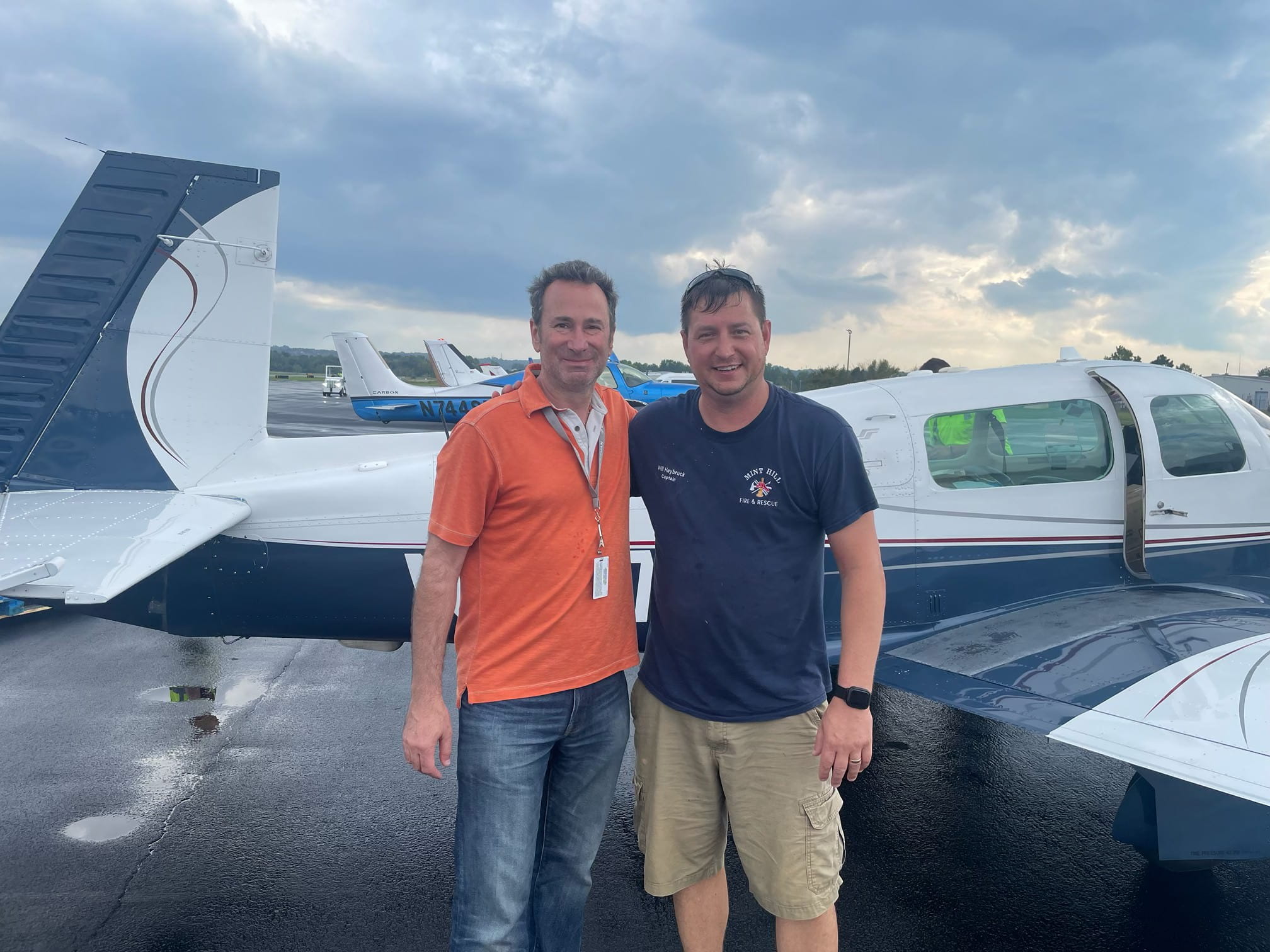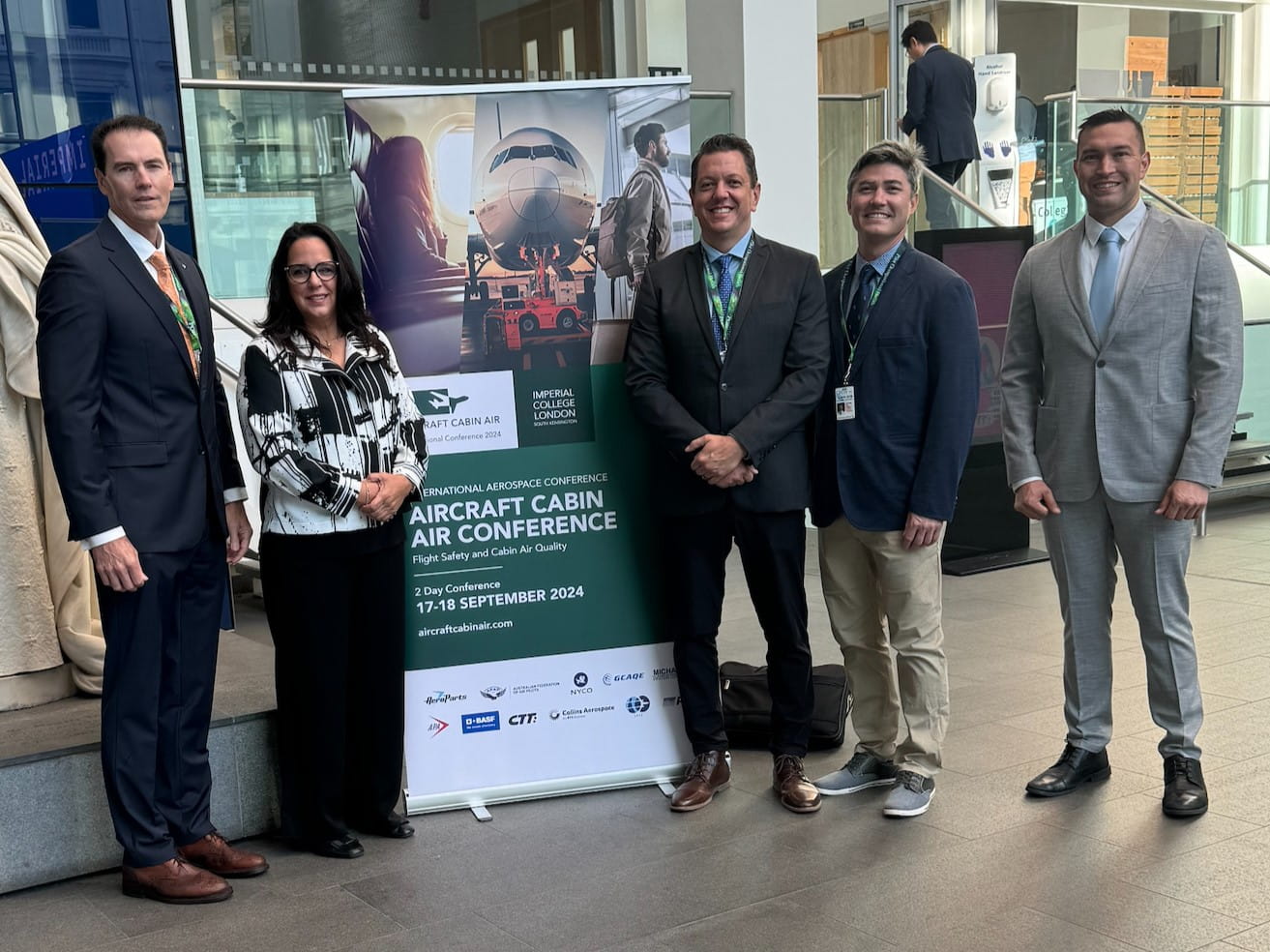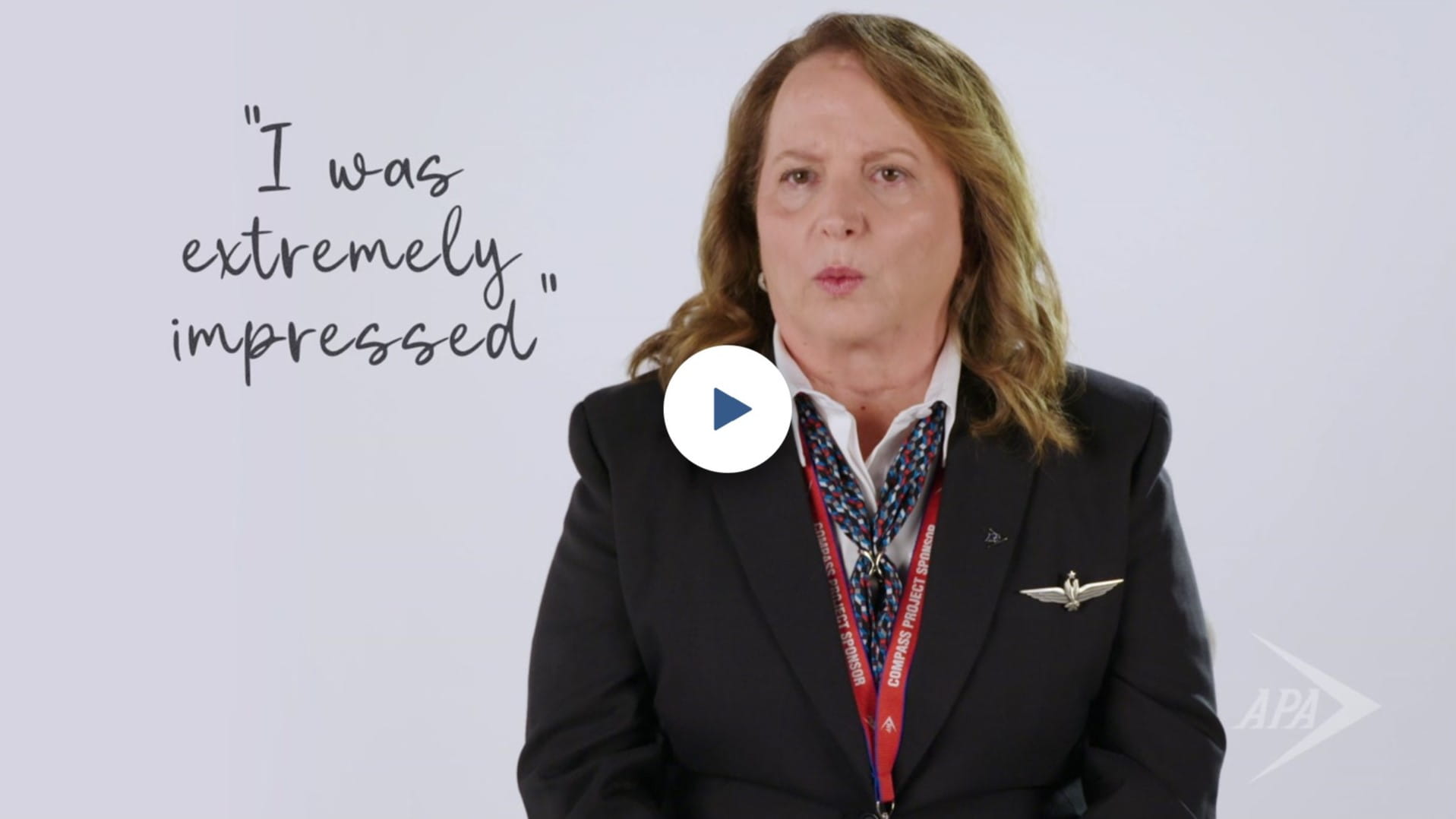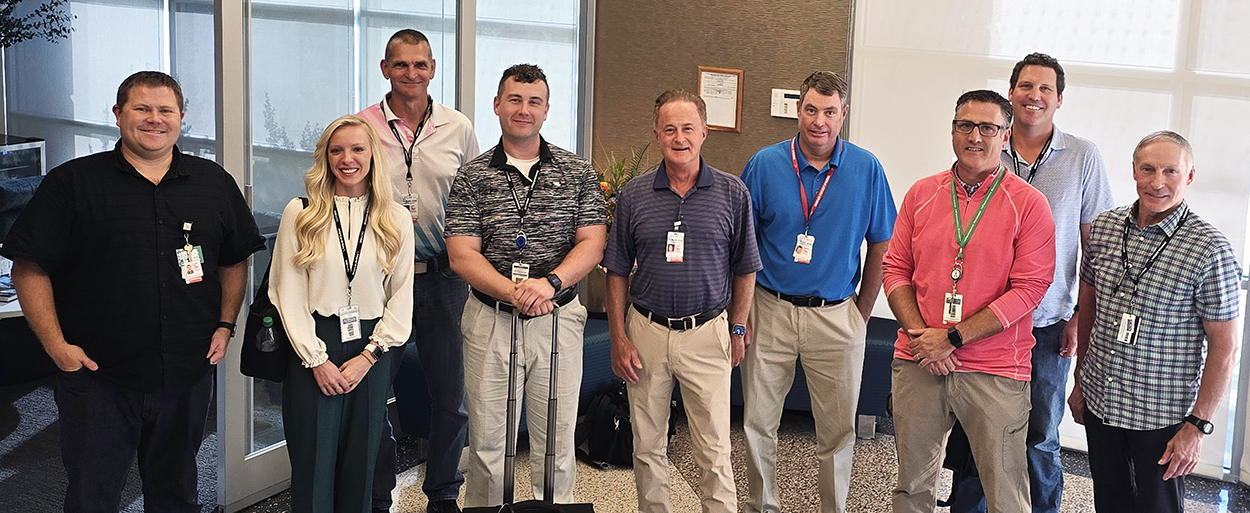APA News Digest
Oct. 6, 2024
Editor’s note: Some links in this message will work best if you log in to AlliedPilots.org before clicking them.
In This Edition ...
- Runoff Round Voting Begins Tuesday
- Fall Board Meeting Begins Monday
- “Pilots Need Checklists”
- Family Awareness Committee: Critical Pilot Response Stands Ready
- Hotel Committee: Shoulder Season Climate Control
- Captain’s Authority Committee: Should You Accept the Aircraft?
- Information Technology Steering Committee: Changes to APA Pilot Forced Updates
- Pilot Occupational Health Subcommittee: Massive Solar Flares Detected
- Pilot Occupational Health Subcommittee: APA Represented at Cabin Air Conference
- Maintenance and Technical Analysis Committee: Pigs of the Week
- Membership Committee: APA Welcomes Leadership Class
- Membership Committee: Gone West
- Domicile Events
- Presidential Constitutional Interpretation – Article VII, Section 1.A.7
- Week in Review
- Are You Willing to Serve?
- Closing of the Seniority Defense Fund Trust
- Professional Standards FAQ
- If You’re 50, Join The Grey Eagles
- Pilot Job Fairs and Future Pilot Seminars
Runoff Round Voting Begins Tuesday
The following Election Round results were certified by Sequent on Oct. 1:
CLT Chair
CA Heather Ducimo Boulanger: 337
CA Erik DeWinne: 337
CA Casey Granger: 47
CLT Vice Chair
FO Hickory Ham: 401
FO Tammy Smart: 171
CA Michael Pfeifer: 149
LGA Chair
CA Mark Lokey: 349
CA Jeff Kerr: 336
LGA Vice Chair
CA James Scanlan: 339
CA David Hines: 250
CA Sam Pool: 96
MIA Chair
CA Jay Wilhelm: 519
CA Thomas Copeland: 456
CA Andrew Weingram: 102
MIA Vice Chair
FO James “Jamie” Funderburk: 671
CA Anne Witcher: 406
Congratulations to FO Ham, CA Lokey, and FO Funderburk, whose three-year terms will begin on Nov. 1.
The CLT Chair, LGA Vice Chair, and MIA Chair winners will be determined via runoffs. The Runoff Round will open on Tuesday, Oct. 8, with the following candidates listed:
CLT Chair
CA Heather Ducimo Boulanger
CA Erik DeWinne
LGA Vice Chair
CA David Hines
CA James Scanlan
MIA Chair
CA Thomas Copeland
CA Jay Wilhelm
Click here to learn more about the candidates. Between 0000 Central on Oct. 8 and 0001 Central on Oct. 30, you can click here to cast your vote.
Fall Board Meeting Begins Monday
The APA Board of Directors will convene at union headquarters in Fort Worth on Monday, Oct. 7, for its regularly scheduled fall meeting. As you can see on the posted agenda, the meeting will include a Membership and Guest Hour on the first day.
Policy stipulates that “Any APA member(s) in good standing or, with the consent of the Board, a guest of a member shall be allowed to address the board. Allocation of time will be 60 minutes divided by the number of members/guests desiring to speak; however, no individual will be afforded more than 10 minutes, including any questions/ answers by the Board. Members and guests must advise the meeting Chair of their desire to address the Board.”
Please email asmith@alliedpilots.org if you wish to address the Board.
The list of resolutions that may be considered during the Board meeting can be found here.
“Pilots Need Checklists”
The APA Communications Committee sent the following message to all members on Wednesday.
When the Compass Project helped CA Kathy Shelton get back to the flight deck after more than two years on long-term disability, she came away from the experience “extremely impressed” with the support she received — so impressed, in fact, that CA Shelton decided to become a Compass Project volunteer just weeks after returning. She then spearheaded the development of the Compass Project’s return-to-work checklist.
Remember, when you encounter a professional or personal challenge – or both simultaneously, which is often the case – APA can help through Project Wingman, the Compass Project, the Sudden Grief Response Program, our aeromedical team – including the APA Medical Advisors and the programs the Aeromedical Committee offers – and the many other peer support programs APA provides.
If you find yourself unsure where to turn, remember the resources that are available to you as a member of the APA family. We’re here for you, and we will provide the support you need to get through whatever you’re experiencing.
You can see more “APA Member Stories” on our YouTube account.
Critical Pilot Response Stands Ready
This is a new message from the APA Family Awareness Committee.

CA Adam Rosenberg and FO Will Heybruck, who are both based at CLT, are among the pilots who have been contributing to Operation Airdrop in the aftermath of Hurricane Helene. You can learn more about Operation Airdrop in this report from NBC News.
With communities across the Southeast dealing with widespread devastation, APA’s Critical Pilot Response program has been working closely with the CLT Domicile to coordinate needs and resources. Please let us know if you need help, or can assist APA pilots and families, via CPR@alliedpilots.org or call/text Family Awareness Committee member CA Jerry Gemma at 561-703-2219.
Shoulder Season Climate Control
This is a new message from the APA Hotel Committee.
One of the things that both AA and APA look at when we conduct a hotel site review is the type of climate control system the hotel utilizes. While newer buildings have modern HVAC systems that can heat and/or cool rooms on demand, older buildings tend to have two-pipe climate control systems. A two-pipe climate control system utilizes one pipe for heating and another pipe for cooling. This system circulates hot or chilled water through radiators or fan coils to regulate indoor temperatures. There are several constraints with these systems. The primary drawback of a two-pipe system is its inability to provide heating and cooling simultaneously. Additionally, maintaining consistent temperatures across multiple rooms or zones can be challenging. Different spaces may have varying exposure to sunlight, occupancy levels, and insulation quality, leading to uneven heating or cooling. This can result in hot or cold spots within a building.
As seasons transition, maintaining comfortable indoor temperatures can be a challenge. In particular, the shoulder seasons – those periods between winter and spring or summer and fall – often present fluctuating weather conditions that can make traditional two-pipe systems less effective. Unfortunately, many hotels in Europe and some of our markets in the Northeast have two-pipe systems. When we are sourcing the market, we try to avoid contracting with hotels that have two-pipe systems; however, this can be difficult in markets where they are more prevalent.
Transitioning between heating and cooling modes requires time for the system to adjust. It can take up to several days for the system to fully switch over. Because of this timeline, many properties will ensure they have a couple of consistent warm or cold days forecasted before making the switch. This delay can be particularly noticeable in the shoulder seasons, where temperatures fluctuate significantly.
While you will not have as much control over the temperature in a two-pipe hotel, there are a few things you can do to mitigate discomfort during the shoulder season. If you are concerned about the room being too warm, ask for rooms on the east side of the building (if you are sleeping during the afternoon/night) and west side if you are a day sleeper. Keep your window shades drawn during the day to prevent sunlight from warming the room. Most two-pipe hotels will deliver fans to your room to assist in keeping the room cooler. If you have the opposite problem and the room is too cold, ask the hotel for additional blankets.
We understand this type of climate control system is not desirable, and we always seek out properties with updated systems. One additional issue in Europe is that governments often set regulations on heating and cooling of buildings. AA Hotel Contracts communicates regularly with our European hotels about their plans to switch from AC to heat and vice versa. Some hotels are better at managing their systems than others, and we use your Hotel Survey data to determine whether the hotel is doing a good job. If they are not, and pilots are reporting uncomfortable stays, we ask AA to source the market.
For more information, check out the recently updated QRH – Quick Reference Hotels document. This resource answers 99 percent of all hotel, transportation, and layover questions while providing helpful solutions. Suggestion: Download this QRH document to your AA iPad for easy access in the future.
Should You Accept the Aircraft?
This is a new message from the APA Captain’s Authority Committee.
From Jetnet – Safety Systems, Efficiency and Compliance:
The Safety Systems, Efficiency and Compliance department’s mission is to protect our customers, employees and equipment by maintaining a strong safety and compliance culture.
From AA’s Rules of Conduct:
-Conduct yourself in a moral and decent manner.
-Consider the welfare of the Company and your fellow team members. Perform no act that is detrimental to either.
Please continue to file Captain’s Authority Threats reports when warranted. Here are two such reports we recently received.
Report #1 – Pressured to “Move the Metal”
The previous crew reported that the evacuation horn began to sound in the flight deck as they left the aircraft. We called for maintenance and entered it in the EAML. Maintenance sent several mechanics to reset the system several different ways, which only resulted in the horn sounding intermittently. Ultimately the mechanic took the aircraft out of service. After this, several maintenance personnel and supervisors boarded and attempted to persuade me to take the aircraft because the horn was not currently sounding. I refused and finally asked my FO and cabin crew to leave the aircraft in order to allow the mechanics to work. The aircraft was taken out of service which delayed the flight enough to cause an illegal duty day and removal from flight. I later noticed the same aircraft at the same gate fully loaded with the jet bridge pulled and checked the EAML to discover the aircraft was signed off and given to another crew without additional maintenance performed. That crew attempted to push the aircraft, but the horn sounded after the cabin doors were closed and the slides were armed, resulting in the aircraft again being taken out of service. An erroneous evacuation horn could have resulted in slide deployment by passengers or flight attendants, causing an unnecessary evacuation and all the risks and hazards involved. Further, ignoring the evacuation horn by flight and cabin crews could lead to a delayed evacuation during an actual emergency.
Report #2 – Director of Flight “Pilot Pushing”
At 2010L I was awarded a sequence that had already been delayed seven hours for maintenance (MX), arriving to the airport at 2250. I called MX to address four AML entries, which included getting an Engineering Authorization for peeling erosion tape. After three hours of steady communication, coordination, and problem solving, it was 0230 and I was in the Yellow (AA Flight Training Threat Error Management model). We asked dispatch for a new aircraft to expedite departure and were assigned an aircraft with an INOP APU. I refused this second aircraft and received a third aircraft 15 minutes later.
After transitioning from external electric to APU on the third aircraft, we experienced a fume event (strong smell of musty, sweaty socks associated with oil in the air conditioning system). Only the crew was onboard at this time, and I told them to disembark. A maintenance technician on the jetbridge stairs outside said to me, “If you don’t want to go, go home.” I had him repeat what he was saying to be sure I understood what he was trying to tell me. He repeated his first statement and added, “You didn’t like the first airplane, you didn’t like the second airplane, and you don’t like this airplane. If you don’t want to go, just go home.” I then told him, “When you want to talk professionally and respectfully, let me know,” and went back inside.
I advised the CSM and MX that we would not take the airplane. I filled out the AML and I submitted a Smoke Odor Fume (SOF) form online. Departure was delayed to the next morning, and I returned home without reassignment.
The next morning the Director of Flight stated that I should have taken the INOP APU aircraft and that the MEL’s Captain’s Authority to refuse this aircraft didn’t apply to my situation. He also assigned a Removal Code 15 (no pay removal) to the sequence (a violation of the CBA). APA Contract Compliance and AA Labor corrected this pay issue, and I received full pay for the 2-day sequence.
MEL Introduction - Flight Crew Procedures
3.1.B “The Captain may request equipment requirements above the minimums listed in this MEL or CDL whenever, in the Captain’s judgment, such added equipment is essential to the safe and prudent operation of a particular flight under the unique conditions prevailing at the time.”
FOM
Preflight-Maintenance-AML
3m.1.7 Airworthiness Concerns/Questions
“... The Captain has the authority to reject an aircraft prior to departure of a flight if dissatisfied with any aspect of the airworthiness/maintenance status of the aircraft.”
Changes to APA Pilot Forced Updates
This is a new message from the APA Information Technology Steering Committee.
We have heard your feedback regarding the forced update required when a new version of an application is released. When pilots need immediate information, it’s not always feasible to wait for the latest update to download, especially in areas with a slow connection. With that in mind, we have made changes to this process.
With Version 2.9.4 of APA Pilot, upon opening the app, you will be given the option to update immediately or to delay updating to some point within the time frame stated in the message. Press the X in the top right corner if you wish to delay the installation.
Note: APA IT will utilize this capability for future updates when possible. In addition, please note that while you may choose to delay the installation, there will be a limit to the length of the delay; typically, this will be for three days.
Decommissioning of Legacy MyOT: As a reminder, the APA IT Department will soon begin decommissioning the legacy MyOT application. Please use the next week to transition your preferences to the new MyOT Beta environment. Complete access to the legacy MyOT and its notifications will be available until Oct. 11.
MyOT Beta currently provides notifications within an average of 11 seconds of the legacy product, with many produced as much as 45 seconds quicker. However, APA IT will continue to work toward bringing down that differential further.
Android Push Notifications: A bug causing Android devices not to receive push notifications has been fixed. If you are still experiencing this issue, please visit the Google Play store and download Version 2.9.6 of APA Pilot.
New Favorites Available: Many of the services available on the APA Pilot app are now available on your desktop and can be added to your custom list of Favorites. Links to these services can also be found on our IT Steering Committee webpage.

Massive Solar Flares Detected
This is a new message from the APA Aeromedical Committee’s Pilot Occupational Health Subcommittee.
The NOAA Space Weather Prediction Center recently observed two massive solar flares aimed Earthward. One is the largest since 2017. The flares ejected large amounts of plasma that are expected to reach Earth this weekend. This is similar in nature to the May geomagnetic storm that saw auroras in the southern United States. This storm may also cause auroras visible to southern latitudes and the potential to disrupt navigation satellites, particularly at high latitudes.

If you happen to experience any disruptions to navigation or radio sources, please file a CERS report under Space Weather/Navigation/Radio Blackout (current FOM procedure). Please reference the Pilot Occupational Health page on AlliedPilots.org for more information or reach out to the committee with any questions: cmte-occupationalhealth@alliedpilots.org.
APA Represented at Cabin Air Conference
This is a new message from the APA Aeromedical Committee’s Pilot Occupational Health Subcommittee.

CA Rondeau Flynn, CA Bridget Van Scoy, CA John Adams, CA Kevin Macelhaney, and CA Joshua Hicks
Your APA Pilot Occupational Health team recently traveled to London for the Aircraft Cabin Air International Conference hosted by the Global Cabin Air Quality Executive. The conference focused on the effects of smoke, odor, fumes (SOF) events and methods of prevention.
Attendees included representatives from airlines, pilots’ unions, cabin crew unions, aircraft manufacturers, lubricant manufacturers, professors, and medical professionals. A few crewmembers who were affected by SOF events presented how those events affected their careers and personal lives. These stories highlight the importance of education and outreach to navigate a SOF event.
Many potential solutions were brought to the table, including cabin air not originating from bleed air (removing the potential for engine lubrication leaks causing SOF events), catalytic converters and filters (preventing hazardous volatile organic compounds from entering the cabin), and non-toxic engine lubrication.
Your Pilot Occupational Health Subcommittee is working hard to ensure you are well represented. We are utilizing multiple avenues to improve your safety and wellbeing. We are working to influence legislation, to advocate for the use of safer equipment, to provide better medical care and understanding, to streamline incident response, and to implement company policies to take care of our aircrew.
If you have had a SOF event and need to reach the POH team, please call 817-302-2154, ext. 2.
Pigs of the Week

APA commends American Airlines’ hardworking aircraft maintenance technicians for their outstanding work. We believe they are the best in the business. When repetitive problems do arise, they’re often due to managerial decisions that fail to properly prioritize tasks and to management’s decision to outsource a significant portion of the airline’s maintenance to offshore, third-party repair stations.
- Since Sept. 14, B777 aircraft 7AL has been written up six times for left engine bleed air, been out of service once, and been on MEL five times. At the time of this writing, it remained on MEL and was restricted to Class 1 or 2 maintenance stations.
APA Welcomes Leadership Class
This is a new message from the APA Membership Committee.
Click the image for a closer look.
On Oct. 2, the APA Membership Committee hosted a casual dinner for the following pilots who were in Fort Worth for American Airlines’ Professionalism, Leadership, and Mentoring class: Hobson Black, Dominic Delrosso, Daniel Frank, Jonathan Hudik, Ryan Kline, Corey Leuwerke, Maci Minor, Todd Murphey, Heath Reed, David Reiff, and Daniel Wold.
Gone West
This is a new message from the APA Membership Committee.
We extend our deepest sympathies to the loved ones of these pilots, whose deaths we learned of in August and September: Dorn Porter, 78, on Jan. 7, 2023; Steve Alderson, 72, on May 6, 2024; Joe D’Ambra, 80, on May 27; Jim Baker, 93, on June 5; Tom Carrigan, 76, on July 1; Mike Davis, 80, on July 6; Mike Madden, 78, on July 11; Chuck Schulz, 88, on July 11; Alan Abell, 74, on July 13; Lewis Insley, 76, on July 18; Bob Farrell, 91, on July 22; Wally Cullum, 86, on July 26; Don Werthe, 91, on July 26; Herb Carter, 82, on July 28; Ed Mitchell, 95, on July 31; Bob Johnson, 92, on Aug. 3; Al Wolchak, 95, on Aug. 5; Paul Cowdrey, 70, on Aug. 6; Don Schweitzer, 94, on Aug. 8; Ed Svetlik, 88, on Aug. 8; Jim Thomas, 91, on Aug. 12; Mike White, 76, on Aug. 13; Ron McGetrick, 74, on Aug. 15; Jack Clough, 86, on Aug. 16; Bob Morgan, 87, on Aug. 17; Nick Breheny, 78, on Aug. 18; Rich Secor, 80, on Aug. 19; Eric Furst, 77, on Aug. 22; Ed Zenner, 74, on Aug. 24; Roald “Skip” Gustafson, 84, on Aug. 26; Chuck Mullaney, 88, on Aug. 27; Kenneth “KB” Bryan, 92, on Aug. 29; Linda Parks, 71, on Aug. 31; George Partlo, 86, on Sept. 5; and Tim Benson, 71, on Sept. 14.
Domicile Events
Visit AlliedPilots.org/Calendar to RSVP for any of these upcoming domicile events:
- BOS: Telephone Town Hall Meeting on Oct. 7
- DFW: Telephone Town Hall Meeting on Oct. 8; Retirement Party on Nov. 9; Holiday Party on Dec. 6
- LAX: San Diego Lunch on Oct. 8; Thousand Oaks Lunch on Oct. 9; Dana Point Lunch on Oct. 10; Temecula Lunch on Oct. 16
- LGA: Telephone Town Hall Meeting on Oct. 7; Retirement Party on Oct. 26
- ORD: Telephone Town Hall Meeting on Oct. 8
- PHL: Telephone Town Hall Meeting on Oct. 8; Retirement Party on Oct. 19
Presidential Constitutional Interpretation – Article VII, Section 1.A.7
The APA Constitution and Bylaws gives the APA President the exclusive authority to enforce the C&B and issue written interpretations thereof. On Oct. 1, APA President CA Ed Sicher issued this interpretation regarding the meaning of Article VII, Section 1.A.7 of the C&B.
Week in Review
Here are some recent messages you may have missed.
- President: A Right and a Responsibility
- Domicile Officers: Voter Lists
Are You Willing to Serve?
Each of these national committees or subcommittees has the indicated number of vacancies:
- Aeromedical Committee (0)
- Critical Incident Response Program Subcommittee (1)
- Disabled Pilot Awareness Subcommittee (3)
- Human Intervention Motivation Study Subcommittee (1)
- Pilot Occupational Health Subcommittee (2)
- Project Wingman Subcommittee (2)
- Captain’s Authority Committee (2)
- Communications Committee (0)
- National Communications Network (2)
- Economic and Financial Analysis Committee (1)
- Grey Eagles Liaison Committee (2)
- Professional Standards Committee (1)
- Scheduling Committee (5)
- Training Committee (4)
- Checkmate (1 on 777)
If you would like to serve on one or more of these committees, visit the Member Engagement Portal.
Closing of the Seniority Defense Fund Trust
The directors of the Allied Pilots Association Seniority Defense Fund Trust Agreement (SDF Trust) have decided to close it and distribute all remaining assets to the APA Emergency Relief & Scholarship Fund. The SDF Trust was created in 2014 prior to the National Mediation Board’s determination naming the APA as the single bargaining representative for the combined pilot group following the merger between American Airlines and US Airways. The SDF Trust was created to support the interests of pre-merger legacy American Airlines pilots in the event of a seniority list integration; the SDF Trust provided funding to the American Airlines Merger Committee during the seniority integration proceedings. The directors have determined that the purposes of the SDF Trust have been achieved, the seniority issues that arose from the merger of US Airways and American Airlines have all been adjudicated, and no more grievances or other issues are anticipated for which the SDF Trust would be needed.
The SDF Trust is an independent entity not controlled by APA. The SDF Trust’s directors decided to close it and asked APA to publish this announcement. According to the directors, all accounts have been paid, a final audit has been conducted, and there is no outstanding business that requires continuation of the SDF Trust.
Legacy American Airlines pilots who desire to view the final audit may do so at the legal offices of James & Hoffman. APA does not have a copy of the final audit and has no authority to demand a copy.
Professional Standards FAQs
What happens with a management referral?
When a Professional Standards volunteer and a manager are both working the same issue, it is the responsibility of the volunteer to determine whether management intends to stay involved or is willing to hand the case over to Professional Standards. The volunteer and management will work together to determine whether the issue could be completed through the Professional Standards process. If an agreeable resolution is not made, the parties are encouraged to elevate the issue to the national committee for resolution or guidance. In all cases, Professional Standards will not accept an issue if management remains involved.
To read all of the FAQs, click here.
Professional Standards’ 24/7 hotline: 817-402-2181
If You’re 50, Join The Grey Eagles
Are you a pilot for American Airlines, at least age 50, active or retired? Please join The Grey Eagles for food, fun, and fellowship. We offer cruises, conventions, monthly luncheons, retirement dinners, professional mentoring, and assistance to surviving spouses – all for a one-time lifetime fee.
Pilot Job Fairs and Future Pilot Seminars
Future & Active Pilot Advisors’ next Pilot Job Fair and Future Pilot Seminar are scheduled for Oct. 25 at DAL. Click here for more information.
Industry News
For more about what’s happening in the industry, be sure to visit the Industry News page on AlliedPilots.org.

